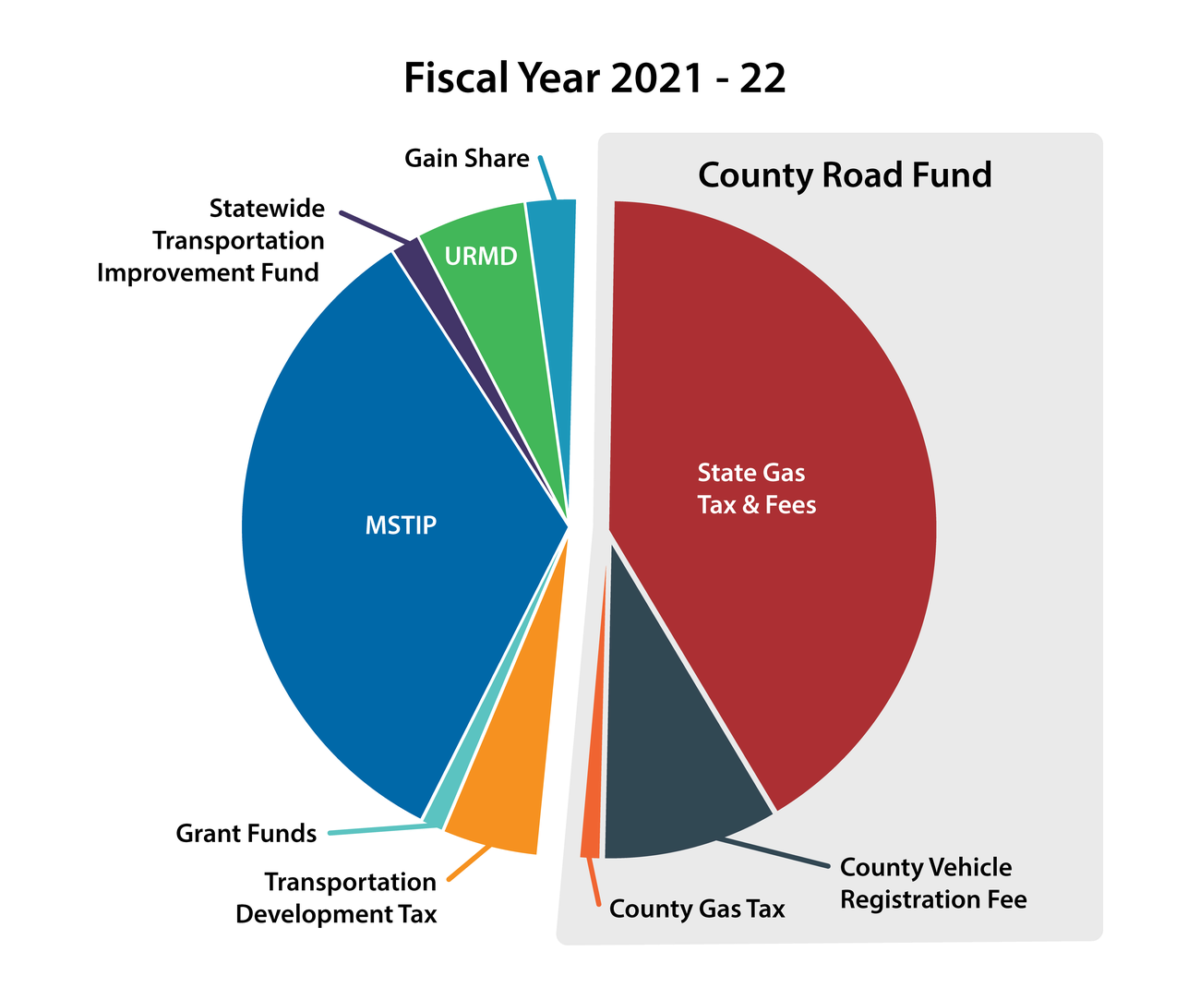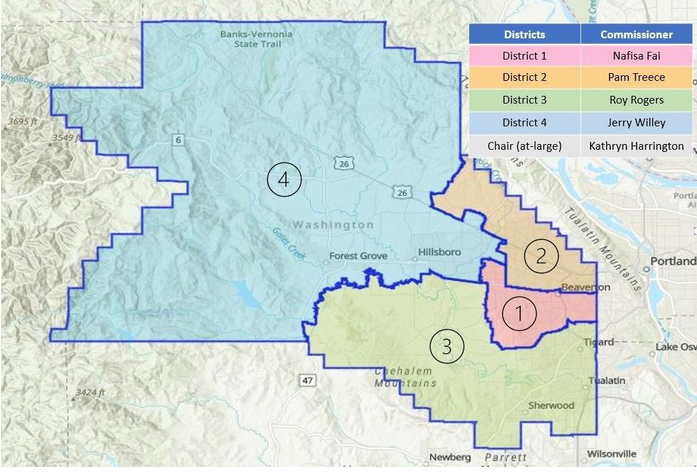The Washington County Coordinating Committee (WCCC) heard this week that looming budget shortfalls might impact a decades-old county transportation funding mechanism.
At Tuesday’s WCCC session, Stephen Roberts, Washington County Director of Land Use & Transportation, reported that county “transportation and other community needs continue to exceed available funding.”
The WCCC advises the county Board of Commissioners on regional transportation and land use planning, and is composed of elected representatives from cities in the county and the county itself. One of its roles is to recommend MSTIP (Major Streets Transportation Improvement Program) projects to the Board of Commissioners.
MSTIP is a funding mechanism unique to Washington County and has a five-year funding cycle. Area transportation departments have submitted 25 projects for consideration for the current 2023-28 round. Understanding MSTIP’s history helps to explain the present funding conundrum. It began as a voter-approved capital levy, but in response to the 1997 tax revolt Measure 50 Washington County rolled the levy into their permanent property tax, with the consequence that money targeted for transportation is placed in the general fund.
There has been a good faith agreement between the cities and county that this money would be transferred yearly from the general fund to MSTIP. With this year’s budget gap, however, the Commissioners have been advised to develop “strategies for mitigating a potential FY 2023-24 General Fund transfer reduction and project cost escalation.” In other words, Washington County needs some of that money, which in past years would have gone to MSTIP, to close other budget gaps.
MSTIP has funded 150 miles of bike lanes and sidewalks, and more than 150 projects totaling $900 million since 1986. This year, Tigard, Beaverton, Hillsboro have projects under consideration for for 2023-2028 MSTIP funding. For example, Tigard’s Greenburg Rd complete street rebuild, which BikePortland reported about last fall.
But projects approved in the two previous MSTIP funding cycles, 2012 (3d) and 2016 (3e), are also putting pressure on transportation funding. Because of cost-escalation, it is anticipated that the county will be obliged to cover an additional $70M to complete the remaining projects.
One of those projects, the SW Multnomah Blvd / Garden Home Road Intersection Safety Project has $1 million in MSTIP funding and $1.2 million from Portland System Development charges allocated to it. But the project, which is managed by the Portland Bureau of Transportation, has languished in the design phase for years, and was “put on hold until more funding can be secured.” Now that MSTIP funding is also up in the air, the project shortfall on the Portland end might offer a convenient way of postponing the project indefinitely.
This year, MSTIP was forecast to provide $140 million, to be divided evenly among the four Washington County districts, making $35 million per district. There is still much uncertainty and, depending on how much money Washington County Board of Commissioners decides not to transfer out of its general fund to MSTIP, capital transportation funding could be facing very lean times.
Roberts recommended that “it is timely now to invest a relatively small amount of funding to begin project development for several new projects while continuing to deliver previously committed 3d, 3e and Bonding Cost-sharing projects.” And he emphasized that the funding issues were of both short- and long-term concern.
In March, the county will have work session briefings on MSTIP and the Capital Improvement Plan. Roberts said that policy decisions will need to be made and that “equity focus and community engagement are key for prioritizing the allocation of limited funding.”



